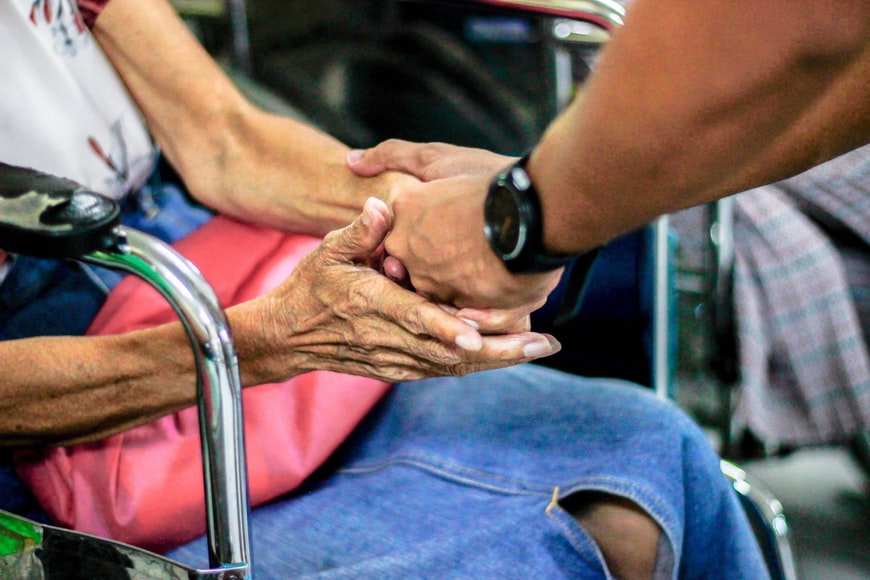Helping Someone with Alzheimer’s Cope with a Spouse’s Death

Losing a loved one to death is a traumatic experience for anyone, but when you are someone with Alzheimer’s, the experience can be devastating. Suddenly, the person who took care of your every need is no longer there.
It’s difficult to help a loved one with Alzheimer’s deal with the loss of a spouse, especially when you are grieving for the loss too. Typically, the spouse is the primary caregiver for someone with Alzheimer’s. When the spouse dies, the surviving spouse must now be cared for by other family members.
If you are now the primary caregiver of a loved one with this debilitating disease, you may struggle to communicate with them about the death. There’s always the chance that the surviving spouse with Alzheimer’s may not understand or quickly forget the conversation.
You may wonder if you should continuously remind your loved one that their spouse has died. You may worry about how many details you should share about how the spouse passed away. Remember that each person with the disease is different, and each one is at a different stage of Alzheimer’s. Consider your loved one’s individual situation to guide you on how much to reveal.
Remember that although your loved one has Alzheimer’s, they still have feelings.
During moments of cognitive clarity, they may be able to discuss the death. But when they’re less lucid, they may speak of the spouse as if that person is still alive.They may even constantly ask you when their spouse is coming home.
There are various stages of Alzheimer’s. So people with Alzheimer’s may have varying levels of understanding about what occurred. The way they grieve and cope depends on the progression of their disease. Those with advanced Alzheimer’s may grieve deeply, but will not have the ability to understand or overcome their grief. So it’s crucial that you know the stage your loved one is experiencing so you can respond appropriately.
Tell your loved one who has Alzheimer’s that their spouse has died. Don’t try to protect your loved one from the truth. Remember that although they’ve lost their memories, that doesn’t mean they no longer experience emotions. Telling your loved one will be difficult, but sharing the truth is better than trying to cover it up. If you try to sidestep the facts, your loved one will sense something is wrong and won’t understand. If you avoid telling them about their spouse’s death, it also prevents them from beginning the grieving process. They may feel abandoned and frightened, thinking the spouse left them without explaining why.
Your loved one may demonstrate their grief in many ways. This may include crying, not wanting to get out of bed, losing interest in eating and anxiety. If they demonstrate new behaviors, this can also be a sign of grief.
So what can you do to help your loved one cope? If appropriate, reminisce about the spouse. If you find that your loved one becomes agitated when you talk about it, save the conversation for a later time. Make sure there are photos of the deceased spouse placed around the home to help your loved one recall happy memories and feel a sense of comfort.
When the time is right, let your loved one help you go through the spouse’s belongings. If appropriate, your loved one can help you decide which items to keep, give to friends and family or donate to charity.
It’s also important to consider moving your loved one with Alzheimer’s to an assisted living community, to make sure they are cared for at all times.
Losing a spouse to death is painful. But if you have Alzheimer’s, your pain is coupled with confusion and fear. If your loved one has Alzheimer’s, strive to always be their support during this time of sadness.
Photo via Pixabay
Our guest blog is courtesy of Marie Villeza




